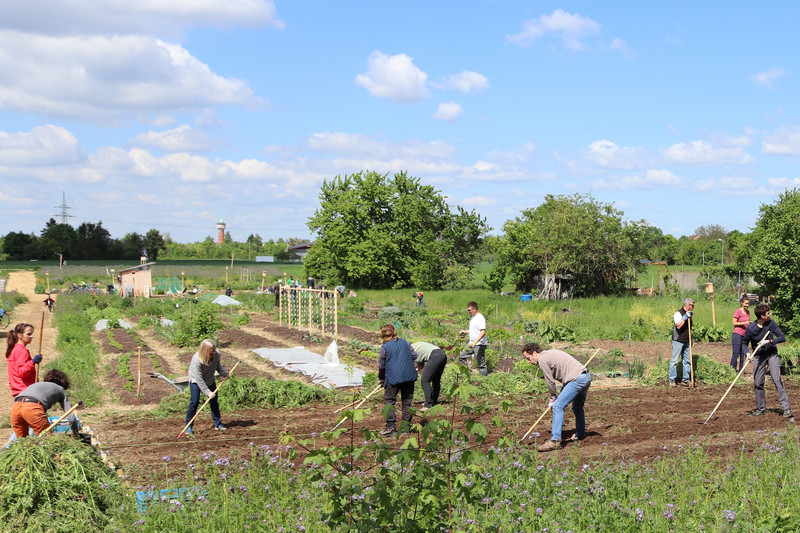Micro-Agriculture for City Dwellers

Especially in spring and summer, many city-dwellers long for closer proximity to nature, homegrown vegetables and fresh air instead of supermarkets and pavement. Parents of young children, in particular, dream of being able to grow healthy food with their children, show them where their produce comes from, and plant vegetables for personal consumption. In the urban area Rhein-Neckar, since 2019, interested participants have been able to satisfy these desires on the small plots offered by the Mannheim organization “Micro Agriculture”. There, they can plant and harvest on their own small parcel of farmland near to the city center.
Those lacking the necessary green thumb can get help and tips from the organization or from the other microfarmers who work together throughout the year to plant, weed, water, and harvest in the urban gardens. In this way, the agricultural project also contributes to the development of the city’s social environment. Parents, children, students, and retirees – all meet together in the gardens, stay moving, and learn new things, such as what it means to use an intercropping method on their parcel or in their garden beds. With intercropping or mixed culture, an approach favored in organic gardening and popular in the Mannheim micro gardens, a colorful combination of salads, herbs, and flowers not only adds color and interest to the beds, but also helps to control pests and prevent plant diseases.
To increase the circle of effectiveness of the organization’s activities, the project organizers hope that more (conventional) farmers in the area will rent some of their land to the micro-farmers via an online platform (currently in planning). This will allow the group to expand their operations and include new target groups. The initiative wants to hereby strengthen regional organic agriculture and make it more accessible. Urban gardening not only conveys new knowledge about plants but also cultivates a deeper appreciation for food. This can encourage urban gardeners to reflect on their lifestyles and their own consumption behaviors.
“That is why micro-farming has the potential to get a real movement going – in the Rhein-Neckar region and far beyond,” said Sebastian Bauer, project manager with the Software AG Foundation. Bauer noted that the initiative is bringing agriculture to the people, addressing contemporary issues, and demonstrating an exemplary and practically realizable solution.
